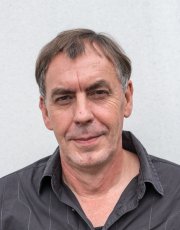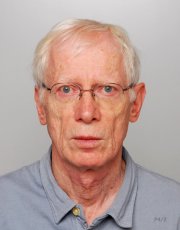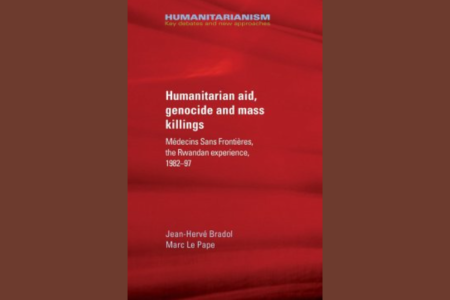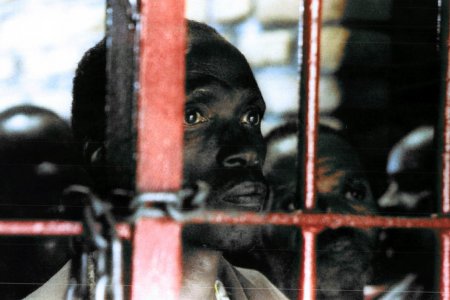
Extreme violence. Investigating, Saving, Judging Democratic Republic of Congo, Rwanda, Syria
Laëtitia Atlani-Duault, Jean-Hervé Bradol & Marc Le Pape
Laëtitia Atlani-Duault is a French social anthropologist. She is a Research Professor at IRD - CEPED (Sorbonne Paris Cité University, Paris V René Descartes), and is the current Director of the Collège d’Études Mondiales (CEM) at the Fondation Maison des sciences de l’homme (FMSH) in Paris, France.

Medical doctor, specialized in tropical medicine, emergency medicine and epidemiology. In 1989 he went on mission with Médecins sans Frontières for the first time, and undertook long-term missions in Uganda, Somalia and Thailand. He returned to the Paris headquarters in 1994 as a programs director. Between 1996 and 1998, he served as the director of communications, and later as director of operations until May 2000 when he was elected president of the French section of Médecins sans Frontières. He was re-elected in May 2003 and in May 2006. From 2000 to 2008, he was a member of the International Council of MSF and a member of the Board of MSF USA. He is the co-editor of "Medical innovations in humanitarian situations" (MSF, 2009) and Humanitarian Aid, Genocide and Mass Killings: Médecins Sans Frontiéres, The Rwandan Experience, 1982–97 (Manchester University Press, 2017).

Marc Le Pape has been a researcher at the CNRS and then at the EHESS. He is currently a member of the scientific committee of the CRASH. Formerly with the CNRS, Marc Le Pape is currently a researcher at the l'Ehess (Centre d'études africaines). He has carried out research in Algeria, Côte d'Ivoire and Central Africa. His recent studies have focused on the Great Lakes region in Africa. He has co-directed several publications: Côte d'Ivoire, l'année terrible 1999-2000 (2003), Crises extrêmes (2006) et dans le cadre de MSF : Une guerre contre les civils. Réflexions sur les pratiques humanitaires au Congo-Brazzaville, 1998-2000 (2001) and Génocide et crimes de masse. L'expérience rwandaise de MSF 1982-1997 (2016).
Over the last few years, Rwanda, the Democratic Republic of Congo (DRC) and Syria have been places where situations of extreme violence took place. As witnesses and investigators of such, the authors of this book shed light on three key-moments that marked these tragic episodes: the investigation, the intervention of emergency relief teams and the implementation of justice procedures leading to judgement.
All were investigators of some sort, in different ways. Social sciences researchers shed light on such topic through investigations, in-depth analysis and publications, often taking part in controversies, especially on the Rwanda situation: what were and still are today the possible ways of investigating on the Tutsi genocide?
Humanitarian workers describe their everyday work of emergency saving operations near extreme violence scenes, but they also tell us about the creation of support networks among individuals thus, becoming the spokesperson of those who live among the shambles. The book also gives a platform to a journalist whose investigations in the Kivu (Eastern DRC) question the treatment by the media of this specific place but also the indispensable alliances journalists must make to get access to these war zones.
These multiple perspectives rely on diverse sources. Judiciary sources allow us to restitute the behavior of extreme violence’s perpetrators by giving access to their discourse and offer a quantitative point of view regarding the legal proceedings established against them.
This book is the result of a long and tedious field work, which brings light and necessary interrogations to think the spaces and individuals linked to extreme violence practices.
The book gathers the contributions of Justine Brabant, Abdulkarim Ekzayez, André Guichaoua, Bert Ingelaere, Myfanwy James, Hakim Khaldi, Marc Le Pape, Timothy Longman, Nicolas Mariot, Sophie Roborgh, Ammar Sabouni, Scott Straus, Claudine Vidal.
Investigating
• Twenty Years after Leave None to Tell the Story, What Do We Now Know about the Genocide of the Tutsi In Rwanda?, by Timothy Longman
• Writing the History of violence during the 1990s in Rwanda, by Scott Straus
• Micropolitics of neighbors genocide in Rwanda, by Claudine Vidal
• The all and the part. About the scholarly reading of the Tutsi genocide, by Nicolas Mariot
Saving
• Humanitarian Field Practices in the Context of the Syrian Conflict from 2011 to 2018, by Hakim Khaldi
• Targeting Healthcare in Syria, by Abdulkarim Ezkayez and Ammar Sabouni
• Missing the (Data) Point? Analysis, Advocacy and Accountability in the Monitoring of Attacks on Healthcare in Syria, by Sophie Roborgh
• Producing Journalistic Discourse on War, by Justine Brabant
• ‘Who Can Sing the Song of MSF?’, by Myfanwy James
Judging
• The judiciary politics of Rwanda at the end of the Rwanda Vision 2020 Program, by André Guichaoua
• A warlord’s career: Bosco Ntaganda, by Marc Le Pape
• Assembling Styles of Truth in Rwanda’s Gacaca Process, by Bert Ingelaere
Two of the book's authors, Marc Le Pape and Claudine Vidal, did a video interview (in French) with the Fondation Maison des Sciences de l'homme to introduce the book's key elements.
To cite this content :
Laëtitia Atlani-Duault, Jean-Hervé Bradol, Marc Le Pape, Claudine Vidal, Extreme violence. Investigating, Saving, Judging Democratic Republic of Congo, Rwanda, Syria, 23 septembre 2021, URL : https://msf-crash.org/en/humanitarian-actors-and-practices/extreme-violence-investigating-saving-judging-democratic-republic
If you would like to comment on this article, you can find us on social media or contact us here:
Contribute Book
Book
Humanitarian aid, genocide and mass killings. Médecins Sans Frontières, the Rwandan experience, 1982-97
11/04/2016 Jean-Hervé Bradol Marc Le PapeThroughout the 1990s, Médecins Sans Frontières (MSF) was forced to face the challenges posed by the genocide of Rwandan Tutsis and a succession of major outbreaks of political violence in Rwanda and its neighbouring countries.
 Corinne Dufka
Speaking Out Case Studies
Corinne Dufka
Speaking Out Case Studies
The violence of the new Rwandan regime 1994-1995
04/03/2014 Laurence BinetThis case study is describing the difficulties and dilemmas that Médecins Sans Frontières faced in 1994 and 1995 when confronted with the abuses and crimes of the new regime that had taken over in Rwanda in July 1994.
Période
Newsletter
Subscribe to our newsletter to stay informed about our latest publications. Interested in a specific author or thematic? Subscribe to our email alerts.
